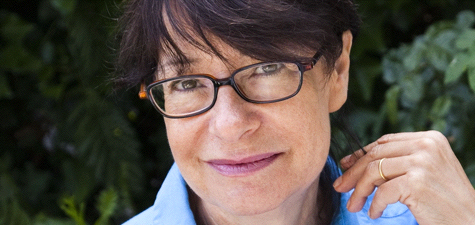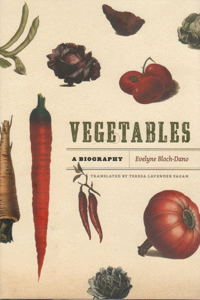
Vegetables: A Biography(Univ. of Chicago Press 2012) is a slim book. Reading it, it is clear that Evelyne Bloch-Dano could have written reams about each of these eleven vegetables, but her succinct tales are perfect for whetting your appetite, filling you in, and illuminating you about the story of vegetables. Translated from the French, with elegance by wonderfully named Teresa Lavender Fagan, it is a quirky handsome little book written for the lover of vegetable patches who is no expert gardener, the eater of fine vegetables, who loves the ones that are imperfect:
And yet, when I really think about it, from my grandmother’s vegetable garden to ancient vegetables, from the biographies of women to the beginnings of the tomato, from dreamed-of gardens to the Norman countryside, from writers’ houses to histories of taste, the path was obvious. It passed through my curiosity, my love of food, my love of literature, nature and life. (p. 5)
Thus, the reason behind studying the history of a vegetable reveals more essential knowledge of who we are. She traces thistle eating in the Ancient world, and then how it continued to be eaten in Tunisia and Andalusia, where the stalk became the cardoon and the thistle became the artichoke. From there, the two enter Europe separately, with some royals preferring one to the other, and lastly, she mentions Sigmund Freud’s love of artichokes. Super Chef won’t give away the answer to the riddle of donkeys and men – guess or buy this wonderful book. The introduction and first chapter surveys the importance or lack of importance of vegetables in culture – poetry, religion, Art, etc. She goes over the idea of taste in literature, cookery and philosophy. Then her writing shines in the first chapter on the Cardoon and the Artichoke:
The introduction and first chapter surveys the importance or lack of importance of vegetables in culture – poetry, religion, Art, etc. She goes over the idea of taste in literature, cookery and philosophy. Then her writing shines in the first chapter on the Cardoon and the Artichoke:
